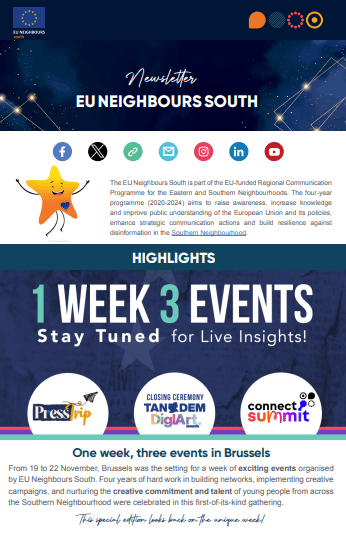
International Zero Waste Day, celebrated on March 30, calls for a transition to a circular economy, using the structured and inclusive hashtag #BeatWastePollution. The European Union is working alongside Morocco to accelerate this transition. With this in mind, a strategic partnership has been signed with UNIDO Morocco to support the SWITCH Switch to Circular Economy Value Chains (SWITCH2CE) initiative, aimed at promoting circular economy practices and an environment conducive to the circular transition in Morocco.
SWITCH2CE is in line with the hashtag #PartenariatvertMarocUE, signed in October 2022, which focuses on climate, energy, and the green economy as part of the external dimension of the European Green Deal. The initiative is fully aligned with Morocco’s commitments to sustainable development, notably its National Strategy for Waste Reduction and Recovery (SNRVD), which aims for a 70% recycling rate by 2030. This initiative is also aligned with Morocco’s efforts toward the 2030 FIFA World Cup sustainability goals.
A partnership has been established with the Casablanca-Settat Regional Council to promote the circular economy in the region. This project aligns with the region’s objectives by increasing plastic collection rates, supporting the formalization of 900 waste pickers, and developing a national recycled PET sector, crucial for Moroccan exports. This collaboration will help boost the region’s circular economy potential, create new job opportunities, and promote innovation in waste management. A pilot project was implemented by the Equatorial Coca-Cola Bottling Company (ECCBC) and its global and local partners. It aims to validate a financially viable bottle-to-bottle collection and recycling process that produces recycled food packaging from used PET bottles. Support for the private sector and training. #SWITCH2CE works to build the capacity of businesses and training institutes by offering specialized training on the circular economy. Using an interactive digital tool, the Circularity Game, businesses can assess their knowledge of circular practices. These results will help shape future training programs.

 Syria *
Syria *


